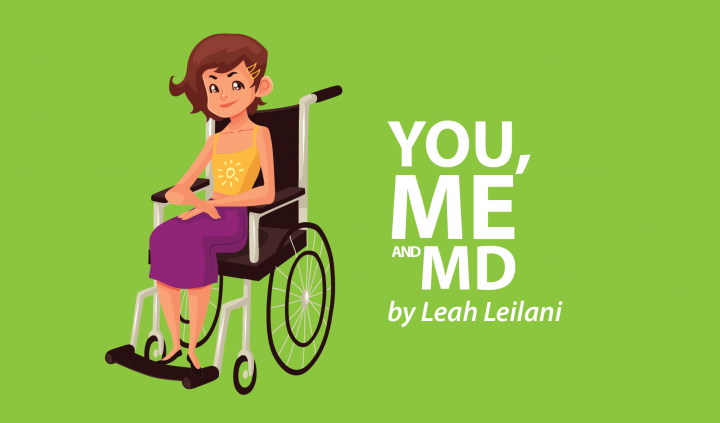I Won’t Give Up My Positive Attitude for Others
Written by |

Sometimes life with a chronic invisible illness can feel backward and upside down. As if anything that I do, whether positive or negative, could come back to bite me in the butt. It’s dizzying to try to predict people’s reactions to something as simple as a photo of me showing off my outfit.
I’m a relatively positive person. Years of dealing with scrutiny from doctors, family, and friends on top of my ailing health have helped to put life in perspective. But believe it or not, my sunny disposition hasn’t always been a blessing.
I’ve been called some crazy things throughout my life with mitochondrial myopathy. Doctors have accused me of being a hypochondriac. Officials at my elementary school thought I was a victim of factitious disorder imposed on another. And the most unfathomable of all accusations: I am too positive to have a chronic illness.
After a recent surgery to remove my gallbladder, I decided to make an Instagram post. I wanted to let my loved ones know that everything went smoothly, and I was healing well. The post included a picture of me standing while lifting my shirt to display my incisions. As the day went on, I grew more uneasy about my post. I considered that people might misinterpret my positivity. Maybe my post wasn’t as accurate a depiction of my current circumstances as I’d thought.
A fine line exists between being positive about a situation and being healthy. Most people assume that I’m physically fine when I respond to a question like, “How are you?” with “I’m OK.” This seemingly simple scenario is complex for me.
When I say that “I’m OK,” I’m comparing my present well-being to past relapses. As long as my symptoms of tachycardia are manageable and I can’t foresee a trip to the emergency room in the near future, I’m doing pretty well. What I’m trying to convey with my “I’m OK” answer is that I’m not as bad as I have been. I think it would be unfair to waste someone’s time explaining the specifics of my life with an energy deficiency every time I’m faced with a casual inquiry into my health.
For people like me, the invisible nature of our illness is a shell that keeps the real horrors of our diseases hidden. If you could see the disarray underneath our skin, there’d be no question about whether or not we’re sick.
I shouldn’t feel a need to alter my life or behavior to convince someone of the reality of my illness. And I don’t plan on giving up my positive attitude merely to comply with someone’s perceptions of life with a disability.
I’ve finally come to a point in my life where I don’t care what people think. I choose to live for me alone.
***
Note: Muscular Dystrophy News is strictly a news and information website about the disease. It does not provide medical advice, diagnosis, or treatment. This content is not intended to be a substitute for professional medical advice, diagnosis, or treatment. Always seek the advice of your physician or another qualified health provider with any questions you may have regarding a medical condition. Never disregard professional medical advice or delay in seeking it because of something you have read on this website. The opinions expressed in this column are not those of Muscular Dystrophy News or its parent company, Bionews Services, and are intended to spark discussion about issues pertaining to muscular dystrophy.






Leave a comment
Fill in the required fields to post. Your email address will not be published.